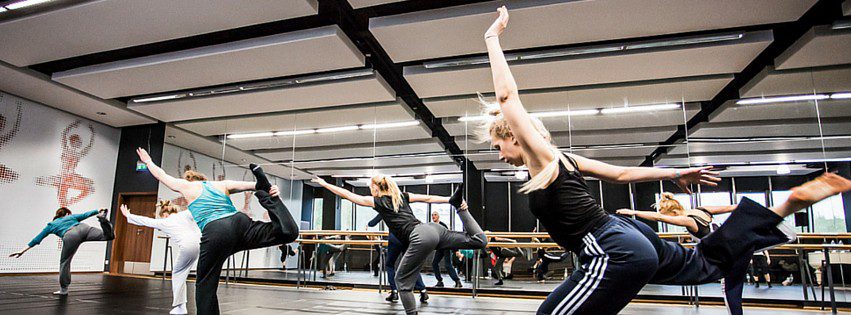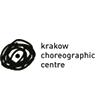Dance workshops as part of the 3…2…1…DANCE!
NOTE Dancers! This is an unique workshop offer. This year’s edition of the choreographic competition 3…2…1…DANCE! provides also dance workshops led by male jurors: Leszek Bzdyl, the great master of Polish dance, the founder of Dada von Bzdülöw and Jos Baker, a world-famous dancer working in such a companies as DV8 and Peeping Tom, now an independent artist.
10-13 March 2016 Nowa Huta Cultural Centre – Krakow Choreographic Centre
This time, you have to come to Krakow – WELCOME!
OPTION 1 The best of the best! 😉 // 10-13 March 2016
four days long coaching with Jos Baker & masterclass with Leszek Bzdyl
only for advanced dancers (attach your CV in the application form)
a total of 18 hours of classes
promotional price of 400 zł to February 10, regular price 470 zł
warning! Limited number of places!
OPTION 2 // 11-13 March 2016
three days long workshop with Jos Baker and Leszek Bzdyl
for intermediate and advanced dancers
a total of 13 hours of classes
promotional price 320 zł to February 10, regular price 380 zł
promotional price 224 zł for participants of 3…2…1…DANCE! choreographic competition till 10th February, after 10th February the price amounts 266 zł
promotional price 256 zł for participants of METAphysical and PRO laboratory till 10th February, after 10th February the price amounts 304 zł
price for Friday’s workshops (Jos Baker + Leszek Bzdyl) 100 PLN
price for one class with Jos Baker on Saturday or Sunday 75 PLN
price for one class with Leszek Bzdyl on Saturday or Sunday 75 PLN
warning! limited number of participants!
Schedule

Jos Baker – from 2008 to 2014 Jos worked for Peeping Tom as a dancer, actor and collaborator, principally with the productions 32 Rue Vandenbranden [2009], and A Louer [2011]. Since then he worked for DV8 Physical Theatre on the production of John [2014] then began directing and performing in the promotional events for Petit Bateau‘s Cedric Charliercollection. Other stage work includes In the process of…[2009] by Zoi Dimitriou and Plastic Junkies [2014] by Antonin Comestaz.
On film Jos made a music video for the song Forgot to live [2013] by Ay Wing, the short film J’te Ramene [2014] directed by Yves Housmann and Biegga savkala duoddariid duohken lea soames [2006] by Elle Sofe Henrikseni as well as several commercials.
He has created several of his own works, including: Afla [2008] Creature Man Don’t Tell Me [2008], Feedback [2009], What do you do? [2015] and Of no fixed abode [2015]
He also teaches internationally, offering a range of classes and workshops for professional dancers at intstitutions including SEAD, Ballet Junior de Geneve, PARTS Summer School, TrinityLaban, The Place, Amsterdam Theatre school, Deltebre Dansa, El Danseu Festival, Tripspace Projects, Ravnedans, Jetsummer and many others.
Jos started his dance training at the age of 7 with Oxford Youth Dance and then continued his formal education first at The Laban Center London and then at PARTS [Performing Arts Research and Training Studios in Brussels.

photo: Lucio Cavllari
The working method Jos Baker:
Coaching
Physicology looks at dance technique from from fundamental Principles of shifting the body through space all the way into complex dance material. It seeks a better understanding of the fundamental physical principles of how the body connects to the floor and how the body can unify or isolate, using imagery and imagination to expand the dancers understanding of their technique. These fundamentals are then expanded into richly detailed and physical dance phrases.
Workshops
This involves learning, practicing and then dancing material made by me and looking at the imagery and physics that make it work. We spend quite a long time repeating these phrases as they tend to be complex, lengthy and high energy, meaning it takes some time for the participants to dance them fully. The material I use has a wide range of influences; from Release to Popping, Flying Low to Forsythe’s improvisation technologies. It often switches rapidly from large scale, full bodied movement to very precise details.
JOS INVITING FOR THE WORKSHOPS: WATCH THE FILM
Leszek Bzdyl – dancer, actor, choreographer, director, and founder and artistic director of Teatr Dada von Bzdülöw. In 1990 he graduated in history from the University of Wrocław. His professional career started in 1987: in 1987–1990 he was an actor of Henryk Tomaszewskiʼs Wrocław Mime Theatre, and in 1990–1992 he worked for Wojciech Misiuroʼs Teatr Ekspresji (performing in College no 24, Idole perwersji, ZUN, Dantończycy, Umarli potrafią tańczyć).
He founded Teatr Dada von Bzdülöw in 1993 together with Katarzyna Chmielewska, to become the theatre’s director, choreographer and leading performer. He has directed over twenty productions of the theatre, among them W cieniu rozkwitających dziewcząt (1994), Zagłada ludu, albo moja wątroba jest sensu (1994), Magnolia (2002),Strategia (2003) and Kilka błyskotliwych spostrzeżeń (a la Gombrowicz), 2004; and co-directed (with Katarzyna Chmielewska) and co-choreographed (Katarzyna Chmielewska and associates) many other pieces. Over almost 20 years of its existence, the ensemble has developed its own characteristic aesthetics, combining theatre, dance and a great potential for self-reference. The theatre’s performances are often inspired by literature (Schwab, Gombrowicz, Vian, etc.), but also by theatre and dance as art forms with changeable performance frameworks and shifting relation with the audience.
The group’s piece Red Grass (2009) was presented at the Polish Dance Platform 2010 and their Factor T (2008) was named the best dance performance in a survey carried out by the website NowyTaniec.pl among dance professionals at the end of 2009. Subsequently, the company produced a collective piece, Le Sacre (2011), which draws on Stravinsky/Nijinsky’s The Rite of Spring; Bzdyl’s collaboration with Chmilewska, Duety niestniejące (2011); and Zagraj To, czyli 17 tańców o CZYMŚ (2013). Bzdyl performed with Teatr Dada von Bzdülöw at many festivals in Poland and over 20 other European countries, as well as in India, the USA, Israel and Palestine. Currently, the company has its permanent headquarters, where they hold various workshops, classes, educational projects and stage smaller-scale pieces. The headquarters, located in a former municipal library in Gdańsk’s Wrzeszcz district and thus called Biblioteka Tańca [Dance Library], serves as a practice space for artists and educational centre.
In 1994–1995 Leszek Bzdyl co-operated with Wojciech Mochniej and Melissa Monteros’ Gdańsk Dance Theatre, performing in Pamiętania, Na marginesie i Puste pokoje.
He participated in many international projects, including Landscape X (Interkult, Stockholm, 1997), In the body and Papugaj (Baltic Dance University, Gdańsk, 2000), Drop Dead Gorgeous (co-production of the Dada Theatre and UK’s Vincent Dance Theatre, 2001 Kilka Błyskotliwych Spostrzeżeń − Trans Danse Europe (Avignon, Brussels, Helsinki, Prague, Reykjavik, 2003/2004), Out of Bounds/ Faktor T (Dance Advance, Philadelphia, USA, 2007/2008) and Co-operation (CDN, Paris, Festival La Batie; Geneva, Opera, 2006).
Since 1994 Bzdyl has co-operated as a director, choreographer, stage movement designer and actor with dramatic theatres across Poland, with Piotr Cieplak being his regular collaborator. His most important dramatic roles are Charlie in Charlie bokserem directed by P. Cieplak, (Wybrzeże Theatre in Gdańsk, 2010), Kaliban in Burza [The Tempest] directed by Julia Wernio (Summer Stage of Miejski Theatre in Gdynia, 1999), David in Niezidentyfikowane szczątki ludzkie [Unidentified Human Remains], directed by Piotr Kruszczyński (Miejski Theatre in Gdynia, 2000), Clarin in Życie snem [Life is a Dream] by Pedro Calderon de la Barca, directed by Julia Wernio, Miejski Theatre in Gdynia, 2003).
He choreographed over 50 dramatic performances, including Opowiadania dla dzieci (directed by P. Cieplak, The National Theatre in Warsaw, 2007), Albośmy to jacy tacy (directed by P. Cieplak, Powszechny Theatre in Warsaw, 2007), Tango and Kosmos (directed by J. Jarocki, The National Theatre in Warsaw, 2009, 2005), Władza (directed by Jan Englert, The National Theatre, 2005), Akropolis. Rekonstrukcje (directed by Michael Marmarinos, Współczesny Theatre in Wrocław, 2009), Taniec Delhi (directed by I. Viripayev, The National Theatre in Warsaw, 2010),Sen nocy letniej [A Midsummer Night’s Dream] (directed by Bożena Suchocka, Ateneum Theatre in Warsaw, 2012), Nieskończona historia (directed by Piotr Cieplak, Powszechny Theatre in Warsaw, 2012). Apart from the above artists Leszek Bzdyl has collaborated with such directors as: Zbigniew Brzoza, Gabriel Getzky, Jarosław Gajewski, Edward Wojtaszek, Paweł Szkotak, Jacek Głomb, Waldemar Śmigasiewicz, Paweł Kamza, Sławomir Batyra and others.
Recently, Bzdyl has directed two drama performances: Cyrano de Bergerac by Edmond Rostand at the Modrzejewska Theatre in Legnica, and Zielone Zoo at OCH Theatre in Warsaw (2010), which he has also written.
In 1997–2000 Bzdyl was the man behind the series of artistic events called Dzień Pięknego Towarzystwa [A Day of A Beautiful Company] held at the Miejski Theatre in Gdynia. In 2002 he founded, and then coordinated until 2007, the festival Korporacja Tańca in Gdańsk, which was gathering dance artists from Gdańsk, Gdynia and Sopot, and stimulating their collaborations.
Bzdyl is an award-winning artists. Among his achievements he may boast: the Award of the Mayor of Gdańsk (1998), the Award of the Mayor of Gdynia (1999), the Award of the Minister of National Education (1999), the Theatre Award of the Marshal of the Pomerania Province (2006), the International Theatre Award Theatre Pasta (India, 2007), and Decoration for Merit to Polish Culture (2010). He received a number of fellowships and scholarships from the City of Gdańsk and the Office of the Marshall of the Pomerania Province.
Since 1990 he has run theatre workshops and dance classes throughout Poland: at the Ballet School in Gdańsk; Vocal and Drama Studio, Music Theatre in Gdynia; National Academy of Dramatic Art in Warsaw; as well as abroad in such countries as: the Czech Republic, France, Finland, Germany, Sweden, UK, USA, and Zimbabwe.
 photo: Edgar de Poray
photo: Edgar de Poray
Leszek Bzdyl workshop description:
My thinking about contemporary dance is the result of individual experiences and rich practice (more than 150 theatrical and choreographic projects in the years 1987-2016, studio work with the Dada von Bzdülöw Theater, long-term educational activity). Equally important, if not essential influence on the determination of my movement system and its functions in the performance / choreography have had meetings and collaborations with dancers, mime artists and choreographers, among others: Tatiana Baganova, Rip Parker, Melissa Monteros, Randall Scott, Avi Kaiser, Cornrlius Fisher Credo, Chris Aiken, Thomas Hauert.
My suggestion is deeply rooted in the tradition of theater. Dance for me is currently the fullest and most effective training for preparation of the actor’s body to undertake the stage tasks. In the technique proposed by me, the same impulse initiates the dance, as well as all the forms of work with voice. Organic motion in dance does not create barriers between stage dialogue and creating abstract forms.
I run a workshop that is largely focused on the codified class in contemporary dance. However, an important part of my proposal is also relaxation and improvisation (both dance and acting). During the work I focus on preparing a dancer’s body so his consciousness, awareness of rhythm and dance economics allowed him to participate effectively and freely in the creative process (theater performance, choreography).
My method of work, or the system in which I move and that suggest is:
– consistent balance between tension and relaxation,
– integration-coordination of movement and breathing,
– anatomical study based on movement tools,
– conscious use of the opportunities potential we have in the dance,
Establishing relationships between dancing body with the space of scene, dialogue with your partner and all subsequent stages of theatrical events start-up are only the result of recognition of the aforementioned components.
Partners:



